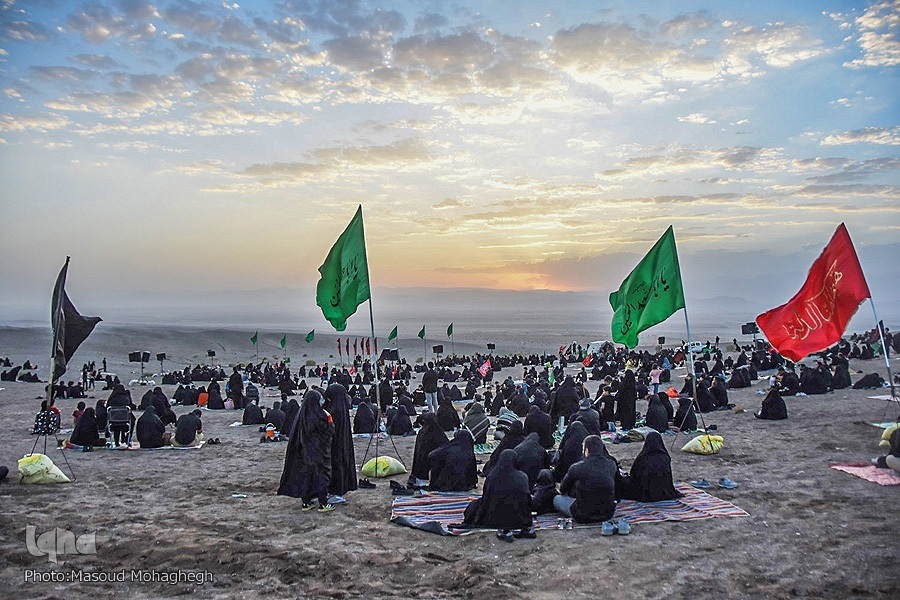Enjoining Good and Forbidding Wrong: Key Principles

This has been highlighted by the late Iranian scholar Ayatollah Morteza Motahari who discussed the issue in his book “Hamaseh Husseini” [Husseini epic].
According to Ayatollah Motahari, understanding the significance of Imam Hussein's movement requires delving into the crucial principles that underpin his actions. Imam Hussein's (AS) ultimate sacrifice was grounded in his commitment to enjoining good and forbidding wrong—fundamental tenets that safeguard the Islamic community's survival. Numerous Quranic verses underscore the importance of these principles, citing historical examples of societies that deteriorated due to their failure to reform and guide.
Several conditions underpin those who champion the cause of good and justice. First and foremost, the advocate must embody righteousness. “Those who repent, those who worship Allah and praise (Him); those who journey, those who bow, those who prostrate themselves; those who order righteousness and forbid evil.” (Surah At-Tawbah, verse 112)
Can one who is not reformed become an agent of reform? Only those who have undertaken reform on the individual level can truly guide others. As Imam Ali (AS) said: “He who has appointed himself an Imam (ruler) of the people must begin by teaching himself before teaching others. His teaching of others must be first by setting an example rather than with his words, for he who begins by teaching and educating himself is more worthy of respect than he who teaches and educates others.”
Leaders tainted by their shortcomings are bound to falter. According to Imam Ali (AS), “Allah curses those who enjoin good but abandon its practice, and those who prohibit wrong but commit it themselves.”
The second condition is possessing insight and awareness. One must distinguish between good and evil, and know how to carry this action out.
The scholar then refers to narrations from Ahl al-Bayt (AS) who said that an ignorant person should refrain from enjoining good and forbidding evil because such a person’s action will result in more harm, not reform.
Stages of enjoining good and forbidding wrong
Ayatollah Motahri then refers to the three stages of implementing this principle.
A. Turning away provided it yields positive change.
B. Guidance through words: Offering advice and counsel is crucial, as wrongful deeds are often the result of ignorance and misinformation and as such, they need a guide for raising awareness.
C. Action stage: Actions vary in approach. Imam Ali (AS) describes the Holy Prophet (PBUH) as a physician. Forbidding wrong is like this profession as it both involves soothing and surgical intervention. The Holy Prophet’s (PBUH) first action was kindness and if it didn’t bring results, he would engage in surgery.
As enjoining good and forbidding evil elevated the value of Imam Hussein (AS) movement, the latter also elevated the importance of this principle in the Islamic world. He exemplified how one can give up their life, wealth, and loved ones to uphold righteousness. This approach hinges on the absence of corruption rather than the presence of personal gain and this is crystal clear in his remarks.
The movement, initially embodied by Imam Hussein, became a collective responsibility for his successors, the honorable Ahl al-Bayt (AS), Motahari says, adding, their goal mirrored Imam Hussein's vision of enjoining good and forbidding wrong.
Understanding nature of the uprising
According to the late scholar, time reveals various aspects of individuals and events:
The discussions have made the nature of Imam Hussein (AS) movement clear to an extent. Individuals are sometimes not recognized at their own time but their true worth is revealed after their death. As Imam Ali (AS) said: “Tomorrow you will look at my days, then my inner side will be disclosed to you and you will understand me after the vacation of my place and its occupation by someone else”
Some events, like some people, only reveal their true significance after time has passed. What may seem trivial in the moment may turn out to be momentous in history; like the event of Ashura, which became more widely understood and appreciated in its various dimensions and aspects over the centuries.
Imam Hussein (AS) wanted to follow the path of the Holy Prophet (PBUH) in leading the community. In the event of Ashura, he not only did his duty of enjoining good and forbidding evil but also revived the seerah of the Prophet (PBUH), which was to guide and lead the people. Analyzing the uprising's nature requires considering its influencing factors; chief among them is the dedication to promoting good and preventing wrong, and the revival of the Prophet's seerah. There were other factors as well, but they were not very significant; such as the invitation from the people of Kufa, Motahari notes.
Translated by Mohammad Ali Haqshenas
This represents a segment within a series of five articles that try to encapsulate the essence of Ayatollah Morteza Motahari's work, "Hamaseh Husseini." For more insight, readers are invited to engage with the entire series through the following accessible links: Part 1, Part 2, Part 3, Part 4, and Part 5.



